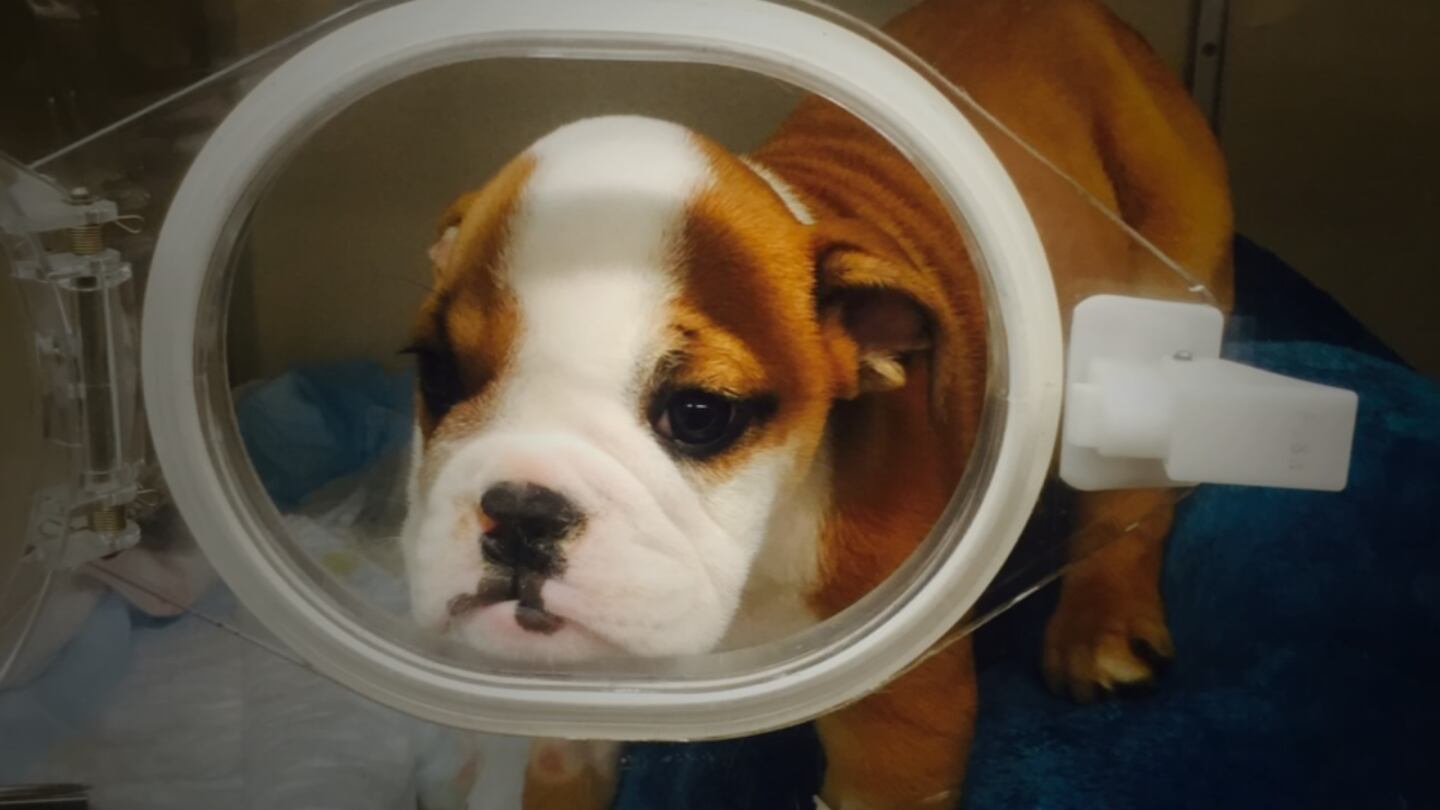Legislation promoted as a lemon law for puppies sounds like a consumer protection bill, but Channel 2 consumer investigator Jim Strickland learned the idea is drawing heat from animal advocates.
They question a key provision of the bill that limits pet store’s liability when a dog or cat gets sick, and limits on local government’s ability to regulate those stores.
Dog owner John Stavrinakis told Strickland he’s also worried about language in the bill. He purchased his bulldog Attie from Petland Kennesaw in August 2016. At $5,500, Atttie came with a healthy price tag and an unhealthy everything else.
“She almost like had to be put on doggie life support to get through this,” Stavrinakis said.
Attie was diagnosed with severe pneumonia days after the store sold her. Her vet bills were nearly $13,000.
“That’s an unbelievable amount of money to think about when you first think about this. It’s pretty infuriating,” he said.
Petland of Kenneaw paid nearly all of the bill, but under a proposed puppy lemon law the store would have had to pay far less. Pet stores’ liability would be limited to the price of the animal. In Attie's case $7,500 would have been out of pocket.
“There’s no way we would have been able to afford it,” Stavrinakis said. “She would have died.”
The bill also states a pet must get sick within 10 days for the store to be on the hook at all, and hereditary disorders have to show up within a year.
“This bill would limit consumer damages when they buy a puppy that was sick at the time they bought it,” Jennifer Hobgood, southeast legislative director for the Animal Society for the Prevention of Cruelty to Animals, said.
The ASPCA is one of several animal advocacy groups who claim the bill is pro-pet store.
“It’s an economic protectionism bill,” Hobgood told Strickland.
RECENT INVESTIGATIONS:
The bill's sponsor said the opposition is off base.
“I know how emotional dog and cat legislation can get, and I thought well this one’s kind of a no-brainer, it’s consumer friendly,” said state Rep. Earl Ehrhart, R - Powder Springs.
Ehrhart said his pets are rescue animals and his bill mandates a host of protections that those adopting rescue pets don’t get, like a lengthy list of vaccines that would be mandatory. Currently, there is no law that requires pet stores to pay vet bill for sick dogs or cats.
“Under this bill, we’ve moved from no responsibility to pay those vet bills to the vet bills are paid,” Elhrhart said. “You know who’s not getting paid? The lawyers in the game.”
The bill reaches beyond the pet store to city hall. It would forbid local governments from banning the commercial sale of dogs and cats. Ehrhart said such bans are discriminatory.
“Businesses have a constitutional right, if you’re not breaking any laws, to do business in an area,” Erhart said.
Canton Mayor Gene Hobgood disagrees. He supported a local ordinance to that banned pet stores from selling cats and dogs in his city.
“The city of Canton was the first of seven Georgia cities to pass such a ban. I, along with the council, actually received more positive input on that one issue than any other issue my last 10 years as mayor. It was just incredible,” Gene Hobgood said.
He said his daughter, ASPCA spokesperson Jennifer Hobgood, brought the Georgia legislation to his attention.
“That’s unbelievable they’re trying to preempt our ability to pass an ordinance,” Gene Hobgood said.
Given the mounting opposition, Ehrhart said he's dropping the lemon law idea, at least for now.
“You’ve got the Humane Society and the ASPCA walking down the streets in neighborhoods in the Atlanta area telling people what an evil, dog-hating person I am,” Ehrhart said. “Because of that I’m not going to continue to push.”
Cox Media Group





